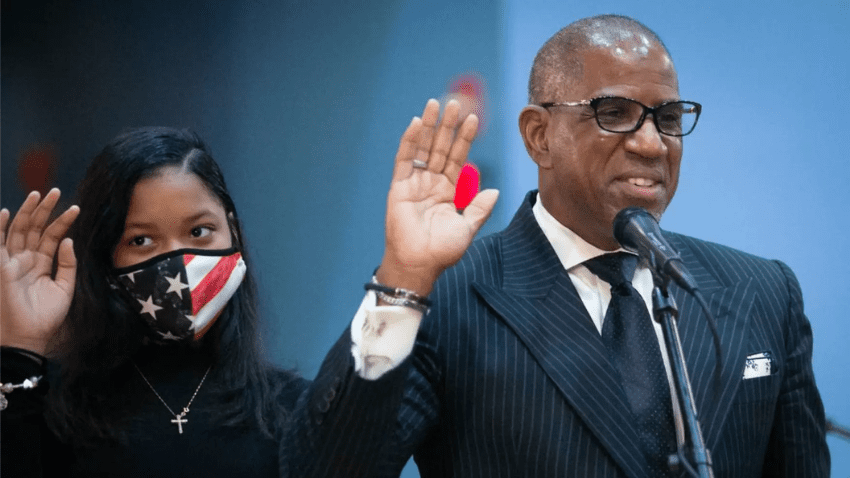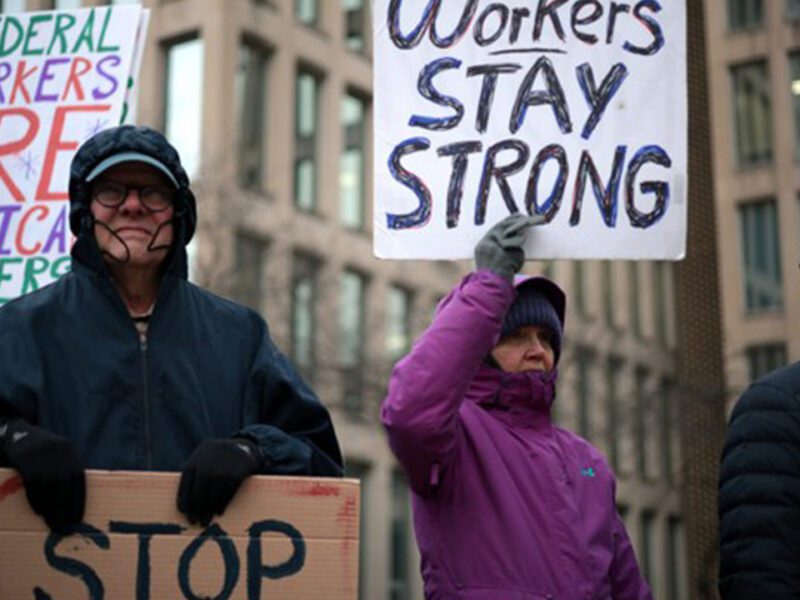
This Miami-Dade school board member was a teen father. That shaped his views on sex ed
WLRN | By Kate Payne | August 4, 2022
Teen pregnancy can upend a student’s life and educational career — and can set families back for generations. For Miami-Dade County School Board Member Steve Gallon, the issue is a personal one: his first child Kastevia Gallon-Martin was born when he was just 16 years old.
He talked about his experience as a teenage father at a recent school board meeting during a debate over whether the district should adopt two comprehensive health textbooks and teach sex education in the fall.
“I look at it based on my journey that started in 1985, as a product of this — or lack thereof. A former teenage father while a student at Miami Northwestern Senior High School,” Gallon said. “So it is personal for me.”
Miami-Dade County Public Schools will be offering sex ed in the fall — after the school board reversed its previous vote to throw out the two textbooks. The decision to reject the books, and effectively opt out the entire district from receiving sex education, drew public outcry and national attention.
WLRN education reporter Kate Payne spoke with Gallon about his experience as a teen dad raising his daughter Kastevia, and the importance of sex ed for him and for students in the district.
The following is an excerpt of their conversation, which has been edited for length and clarity.

GALLON: At that particular time I was 16 years old. The mother was 16 years old. We were high school students and we found ourselves in that situation. Fortunately, we had resources. We had information on how to navigate our way through that particular challenging time.
All fathers are not as responsible as I was at a very young age, because I really accepted that obligation and fulfilled it with fidelity and integrity. But let’s face it: life would have been different had I not had to have that additional responsibility. Tremendously blessed with my children. Would not have had it any other way. It was part of God’s plan. But obviously, it was not intentional.
I’ve been tremendously blessed, graduating from high school, attending college, earning a master’s and a doctoral degree. But I know that I’m the exception, not the rule. And obviously many of our young people are shackled. Teenage parenthood can become an albatross for the rest of their lives.
Once you drop out of school, you’re compounding many of the challenges in life. And information is power. And what we cannot do in any educational scenario is deny children an opportunity to be powerful in their decision making.
WLRN: What was that time like in your life? How did you experience that in the moment, as far as trying to stay on the path of education and graduating high school?
GALLON: Very difficult. But again, I had tremendous support that did not simply come from my home. Educators, counselors, administrators, members in the community, wrapped their arms around me, gave me some guidance, gave me some support.
But again, never would say it was easy. We have legions of young people that fall to the wayside educationally because of decisions they make at a very young age. Find themselves terminally on the margins of our society. And that’s something that education should try to mitigate as much as possible.
WLRN: You’re a product of Miami-Dade public schools. What did you learn in middle school and high school about sex? Could that have put you on a different trajectory if you had more information during that critical time in your life?
GALLON: Yeah, absolutely. It could have. I graduated from Miami Northwestern Senior High School. My parents once again did not have “the talk.” But it’s not that I was not able to have access to the information. Could it have been amplified a little more?
But at the end of the day, it comes down to individual decisions that we all make. I think our children and our youth need to be equipped with as much information to make the best decisions possible.
WLRN: For teen mothers, only half of them will go on to graduate high school. Their children are more likely to struggle in school, to drop out and to be incarcerated. What more can the district do to support teen parents?
GALLON: I think the district has been a leader. In my last position in this district, I was [in charge of] alternative education. I was over the schools that served young mothers and teenage parents.
I want to say mothers and teenage parents, because fathers, they can get the resources, they can access additional information and guidance. Our district does provide these particular programs.
Can we do more? Absolutely. And as you indicated through those particular data points, those issues show up not simply in our schools. They show up in our communities, they show up throughout the state, and quite frankly, they show up in underserved, underperforming and under-resourced communities. It often leads, specifically for young African American or Hispanic males, to a pathway toward prison, poverty or an early death.
And we have an obligation, we have a responsibility — both professionally and morally — to make sure that we equip students with the lifelong skills that they’re going to need. And some people believe that that’s not our role, that’s not our responsibility. But our parents, our families — many of them are depending on us.
WLRN Senior Editor For News Jessica Bakeman contributed to this story.





